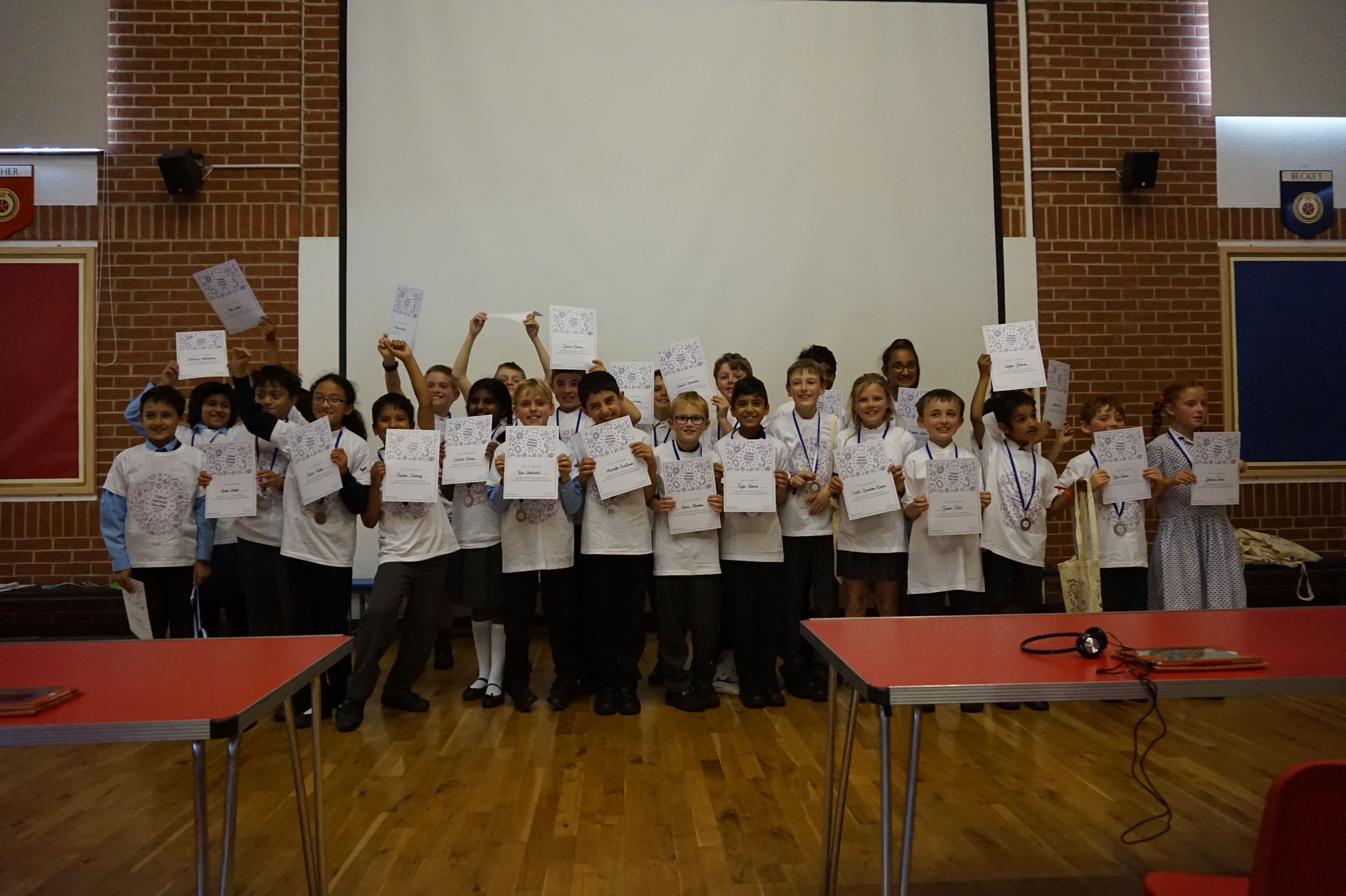How idioms help you make a language your own
When learning a new language we are happy to pass every little milestone: the first time you address a native speaker, the first conversation… All these achievements mean the world to us, they are the reward of our continuous learning. When becoming fluent in a language you can express almost everything you want to say, but there is still that one little step further, that gives your words something that make them yours. Something that gives them personality – and this can be achieved through the use of expressions and idioms.
Many idioms make no sense even if we know the meaning of each individual word! But some of them are easy to figure out, like for example ‘it takes two to tango’, meaning an action or activity that involves participation from more than one person.
To me they are very interesting and it gives me insight into the British culture. Not to mention the fun of using them in a conversation, possibly wrong sometimes but nevertheless entertaining! That is how I learned that when you’re ill you can be ‘a bit under the weather’ or to not take someone seriously is ‘taking it with a grain of salt’.
Sometimes expressions are international and can be directly translated through more languages without losing their meaning, like ‘a picture paints a thousand words’.
Learning the academic language is certainly the most important aspect when embarking on such a challenging journey. However, informal words, idioms, expressions and slang will bring you closer to the people you share the language with. It will make any conversation more pleasant and will allow you to put your own stamp on the vocabulary you are using.
How do I learn idioms?
The best way to find out which are the most used expressions, or the most popular ones, is to ask a native speaker, read local magazines and newspapers or watch local TV shows. My personal preference is to spot them in conversations and ask people what they mean.
For example, last week I learnt the expression ‘get the bit between the teeth’ from my boss. Which he also kindly explained (possibly because my face indicated that I had no clue what he was on about). The bit is a piece that goes inside a horse’s mouth and pushes against its soft parts, which causes it to turn. When the horse gets it between the teeth he takes control over from the rider and can’t be stopped. Pretty interesting, huh?
What are some funny or unusual idioms in your language?
Ioana
Arabic: are you up for the challenge too?
After seeing how amazing our Junior Language Challenge semi-finalists were at learning Mandarin, we’ve set our 33 finalists the new challenge of learning… Arabic.
Over 250 million people speak Arabic, across 22 countries. There are a number of different dialects within Arabic, including Moroccan, Classical, Lebanese, Gulf and Egyptian. Modern Standard Arabic is understood across the Arab world, and is used widely across different publications.
Is Arabic as different to English as it looks?
There are several similarities between Arabic and English:
- The punctuation marks are used in the same way – however, in Arabic these can look very different; the question mark in Arabic is reversed, compared to the English way of writing a question mark.
- There are some Arabic words that have contributed to the English language, such as succar, which is ‘sugar’ in English.
The differences between English and Arabic make the language rather difficult to learn.
- Arabic letters look completely different to the English alphabet.
- These letters are also written right to left, instead of left to right. This means that the front of the book in Arabic would be considered the back in English.
- Sentence structures also differ to English, with the adjectives coming after the noun. For example, we would say the ‘blue car’, whereas in Arabic it would be ‘car blue’.
- Unlike English, Arabic only has 3 vowels and these have differentiations. Many words in Arabic start with a consonant followed by another consonant, and again like vowels, these have differentiations too. Another difference is that Arabic doesn’t have any capital letters; instead they use quotation marks to emphasise letters instead.
Although Arabic may seem like a difficult language to learn, it is one of the eight most spoken languages in the world. Hopefully with enough practice before the Junior Language Challenge, our finalists won’t be thinking ‘Ana La Afham’ (I don’t understand) or ‘Annajdah’ (help)! I am sure our finalists will be just as fabulous at Arabic, as they were with Portuguese and Mandarin. If you’re going to the Language Show on Friday 16th October, and you’d like to see how great our finalists are at learning Arabic, come and find us in room 3 (level 3).
And if you’d like to learn Arabic yourself, you can download our uTalk app to get started for free!
Alex
EuroTalkers try… Chinese Mooncakes
Every year on the 15th day of the 8th month of the Chinese lunar calendar, millions of ethnic Chinese celebrate the Mid-Autumn Festival (中秋節, pinyin: Zhōngqiū Jié) around the world. This year it falls on 27th September, but you’ll find that festivities are held throughout the month. It is thought to originate from ancient times when people would worship the Mountain Gods after the harvest was complete.

Today, the festival is celebrated not only to honour the moon and the rewards of the harvest, but to gather with friends and family in a celebration of unity and harmony. One of the traditions (and for me the most exciting part of the festival) includes the making and sharing of mooncakes (月餅, pinyin: yuè bĭng). I absolutely loved eating mooncakes growing up and couldn’t believe how many types and flavours you can get now on my recent trip back to Singapore & Malaysia.

These little beauties are a type of pastry commonly filled with lotus bean paste (蓮蓉, pinyin: lían róng). You’ll also often find ones that contain a salted egg yolk which represents the full moon.
It’s not really a flavour/texture that I’ve found anywhere in Western food culture, so I decided that I would ‘subject’ my colleagues to a bit of a mooncake tasting session. With 4 flavours to choose from namely green tea, pandan, red lotus and white lotus, who would be able to resist these sweet delights? I definitely wasn’t secretly hoping that no one would like them… just so there would be more left for me! Check out the video below to see their reactions!
Are you a mooncake fan or a mooncake newbie? Either way we wish you a very happy and mooncake filled Mid-Autumn Festival! 中秋快乐! Zhōngqiū kuàilè!
Safia

Is it possible to forget your native language?
I recently came back from a week long vacation in my home country, Romania. While there, I noticed something very interesting that I’m sure you’ll find as fascinating as I did.
I’ve been living in London for more than two years now and on a daily basis I only speak English. Well, I am currently learning my boyfriend’s language, Spanish, but that’s not really relevant for now. I do text and chat to my Romanian friends and my parents, and we sometimes speak on the phone, but 90% of the time I speak and think in English. Except when I have to count something in my head, that’s still Romanian – happens to you too?
 So anyway, when I went back I obviously sat and talked and went out with friends and family, and so I noticed that in longer conversation I was having trouble using complex words and expressions and that I was often translating my thoughts from English to Romanian. In that way, I found myself asking in a café if I can have some brown sugar – but in Romanian the expression is actually ‘can you give me some brown sugar’, so I got some weird looks and then realised how silly it sounded.
So anyway, when I went back I obviously sat and talked and went out with friends and family, and so I noticed that in longer conversation I was having trouble using complex words and expressions and that I was often translating my thoughts from English to Romanian. In that way, I found myself asking in a café if I can have some brown sugar – but in Romanian the expression is actually ‘can you give me some brown sugar’, so I got some weird looks and then realised how silly it sounded.
The way I see it is that the brain seems to keep the information and skills that you use on a daily basis ‘at the surface’ and puts the rest in a back drawer. So the longer the time is that you do not think about something, the further back it goes. And so we forget the surnames of the people we went to school with and whose names we were able to say alphabetically by heart at the time, we forget about that awful blind date we went on a few years ago, we forget what a certain place that we used to see every day looks like.
Now I understand a bit better why daily practice makes such a difference when learning something new, be it a language, a software program or playing a new instrument. Keeping the knowledge fresh in your brain allows easier access to it and so you’ll find it extremely handy when faced with the opportunity of using it.
If you are determined to learn a new language, even just 15-20 minutes a day can make a huge difference, especially if you’ve found a fun way to learn. Our uTalk app helps you practise your new language, it’s fun and it trains your memory to remember what it learned. And it has 128 languages to choose from!
Do you find you’re forgetting your native language? I hope I’m not the only one!
Ioana





